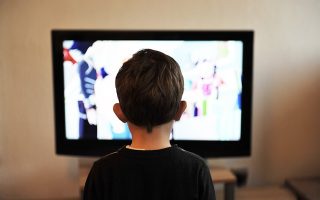Helping the holidays teach your child lifelong lessons
For children Christmas is a time of joy, but also a time of far too much stimulation. All around the globe children are getting overwhelmed with the festival and meltdowns are creeping in. Children are having tantrums about the tiniest little things and there are parents pulling their hair out, all for a few days celebration.
Christmas can be a stressful time for parents, there are so many demands and you want your family to have the greatest time of their lives, but then it all gets too much and someone ends up snapping! So I just wanted to take this opportunity to wish you a Happy Christmas and give you three tips to make this holiday period a little bit less stressful for you.
1 – Spread your present giving out
Where is it written down that children have to open their presents all in one go? Now for practicality’s sake you may find that you receive a lot of presents at the same time, however for children (especially young children) it is very easy to get overwhelmed with the sheer number of gifts. Think about the child who rips open all of the presents, not caring who they are from, and then spends more time playing with the packaging than any of the gifts. This can be due to being overwhelmed with the gifts or not knowing how to play with the new toy (a need to be shown).
It is better for the child to open a few gifts at a time and not get so overwhelmed.
Spreading the gifts out over a week or so can help with this. Just like us, children can only focus on a few things at a time. If I gave you a pile of 20 or 30 presents, I would imagine you would open them, but then chose one to look at in more detail. This is a skill you have learnt and it’s one that we can teach our children. If they open just a few presents at a time it is a great deal easier for them to choose something they want to play with out of a choice of 3 or 4, than a choice of 20-30. Particularly for younger children, you can then model how to use their new toys, reducing the likelihood of them being broken quickly, but also helping your child not get overwhelmed by a large choice.
2 – Giving before receiving
Here is where you can set your family apart from the rest (and have a really easy win in terms of avoiding meltdowns). By teaching your children that they have to give out the presents to the rest of the family first, before they receive, you are teaching them something called reciprocity. This is to do with the art of giving something to receive something, an important life skill. We learn it from the first few days of our lives (when a baby learns to react to their mother) and it continues throughout childhood. It has implications for the way we are at work, the way businesses trade, marketing, friendships, social skills and will affect the whole of a child’s adult life.
But far more immediate is that by teaching your children to be generous and give their gifts prior to receiving theirs, you are helping them to contain their excitement and stopping them from going too far, in a sense you are helping to hold their emotions at the time. How many times have you seen a child who is only interested in opening their presents and doesn’t pay any attention to the gift giving after that, or the whole of the present giving ‘ceremony’ becomes about one child? Start practising a couple of days before so that’s it’s not a strange concept, but it does make life just that little bit easier.
3 – Fair is not equal
I know I’ve said this many times, but fair is not equal and Christmas is a perfect time to teach your children this. A massive example is number of gifts, fair is that you have spent roughly the same on your children, however it is hard to get the same number of gifts to open, so equal is not fair in this case. Talk to your children about it, get them to expect a different number of presents, comment on it as you see it happen with other people or on television. Like many things, it’s about preparation, if you’ve already rehearsed the answers with your children, when it comes down to it, they will recognise the response that you will give when they start to complain about it not being fair…
Another example is giving a gift to someone who needs it, think about an elderly relative who is unable to go and buy gifts, but it means the world to them to receive a gift from a child. Now, that is not equal, but how important a life skill is it to teach children compassion, humility, kindness, isn’t that what the spirit of Christmas is about?
Have a wonderful Christmas from everyone here at the Kid Calmer team, if you want any support Richard will still be running the weekly Q&A sessions that comes with membership of our parenting network Help My Child Grow.



